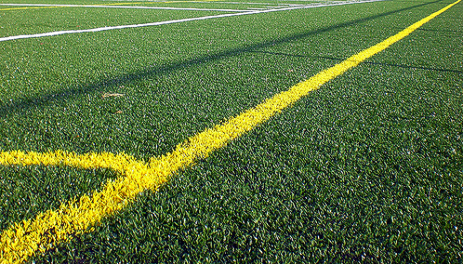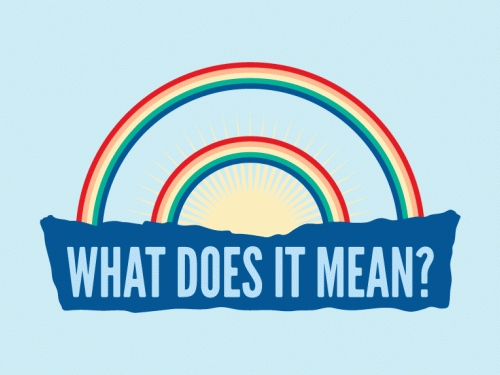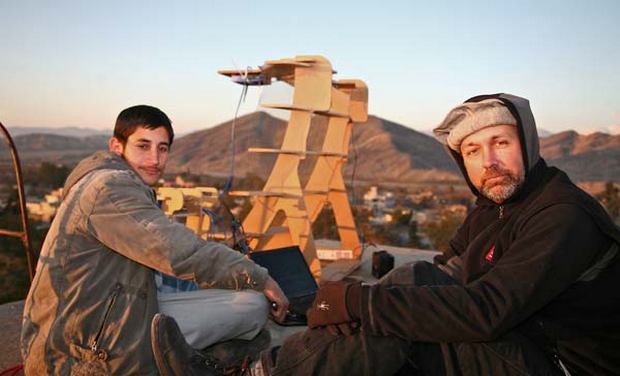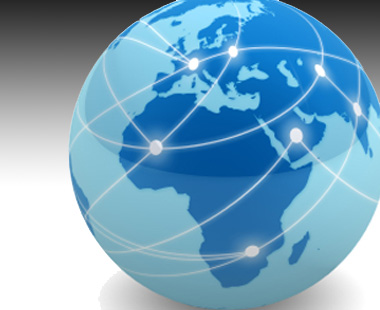internet
-
All of the internet uses less than 2 percent of the world’s energy
Humanity spends a lot of time on the internet. Too much, probably. And every little Google search, Facebook message, and tweet uses some energy. All that Hulu uses a lot more. It's been clear that energy going to internet use is growing, but how does it compare to total energy use? If we really want […]
-
Tar-sands pipeline gets support from fake Twitter accounts
What do Astroturf and the Canadian tar sands have in common? They're both made of petroleum, and now they've both got fake grassroots. An employee of the American Petroleum Institute, which supports the Keystone XL tar-sands pipeline, has apparently been setting up multiple fake Twitter accounts to give the illusion of public support.
-
Meet your newest green candidate: Double Rainbow guy
It turns out that Double Rainbow guy, everyone's favorite non-cat meme producer since Tay Zonday, has a name (it's Paul Vasquez) and a face (it's sort of Cheech Marin meets Hurley). He also has an alternative energy platform and a presidential campaign, of sorts. A Facebook app called Votocracy allows normal (for some value of "normal") people to declare their candidacy, garner votes, and even debate each other in a sort of American Idolesque shadow campaign.
-
Hacking for the planet
Notorious hacker group Anonymous launches a campaign of cyber attacks in support of green causes. Monsanto fell. Are Canada's tar sands next?
-
How to build an open-source internet from household trash
If there's anything we learned from the revolutions in the Middle East, it's that the internet has become a critical tool for burgeoning democracies. So what to do in places where the internet is tightly controlled, or just unreliable? For residents of Jalalabad, Afghanistan, the solution is: build your own. Using help from the National Science Foundation and a pile of household trash, they've built an open-source wireless network that can transmit up to several miles.
-
Climate change could ruin the internet
Sure, climate change threatens animals and people and cities and all that life-as-we-know-it stuff, but apparently it can also make Bejeweled Blitz run super-slow. OUTRAGE! Something must be done! Seriously, I half suspect this of being a hoax by old people who think young people are only motivated by the Facebook anymore, but a government […]
-
How the internet is saving the physical world by making it disappear
In 2009, a study by researchers at Carnegie Mellon and Stanford made the case that the switch to downloading music from transporting physical CDs had significantly reduced the carbon footprint of Americans' music consumption. That's just one of countless examples of "ephemeralization," which is the process by which new, post industrial-revolution technology tends to lead to […]
-
How wiring the developing world can help save the planet
Envaya helps people in Africa build ultralight websites, on the ultracheap.Like most equatorial countries, Tanzania is feeling the impacts of climate change. Malaria is spreading to areas at ever-higher altitudes. Lake Victoria, which feeds the Nile, is retreating. The rainy season is starting later and getting shorter — last year, the typically four-month season lasted […]
-
Futurist Ray Kurzweil isn’t worried about climate change
Ray Kurzweil.Photo: JD LasicaBy Lauren Feeney Author, inventor, and futurist Ray Kurzweil famously and accurately predicted that a computer would beat a man at chess by 1998, that technologies that help spread information would accelerate the collapse of the Soviet Union, and that a worldwide communications network would emerge in the mid 1990s (i.e. the […]








